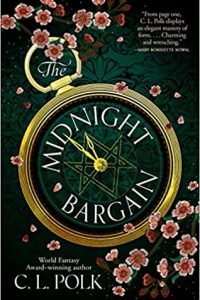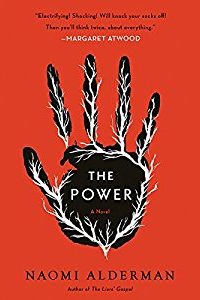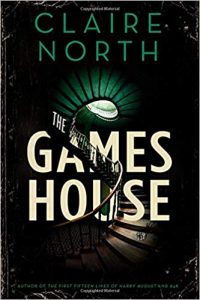Adrienne Martini Reviews How to Mars by David Ebenbach and Questland by Carrie Vaughn
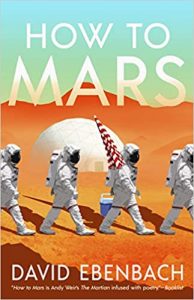 How to Mars, David Ebenbach (Tachyon 978-1-61696-356-9, $16.95, 256pp, tsk) May 2021. Cover by Elizabeth Story.
How to Mars, David Ebenbach (Tachyon 978-1-61696-356-9, $16.95, 256pp, tsk) May 2021. Cover by Elizabeth Story.
David Ebenbach’s How to Mars is one of those books that could be easy to write-off as a delightful bit of fluff. Six humans from various backgrounds take a one-way trip to the red planet, sent there by a publicity-seeking corporation that monetizes their training and early days via a reality series. The crew has been on the planet long enough that the audience has lost interest in the show and the crew has found a new level of boredom from the routine of staying alive. The Destination Mars! Corp is continuing to send supplies, mind, but offers little other support.
Then, one of the settlers finds herself pregnant (despite all of them explicitly being told in no uncertain terms to avoid sex and partnerships of any sort). Interest in the base is re-ignited on Earth. On, Mars, our six humans have to sort through their very complicated feelings and the very real dangers of pregnancy. Will the baby be healthy? Will the mom survive? Will the crew turn on each other? We don’t know, and therein lies the tension.
While those are the circumstances of the plot, what makes How to Mars memorable is the way that Ebenbach chooses to tell it. Rather than a traditional narrative, How to Mars is unspooled in scientific notes, entries from the sardonic Destination Mars! handbook, and more familiar prose. Moments are laugh-out-loud funny, but the whole tone is light, despite the uncertainty that hovers over the crew. Until the last 30 pages, it reads like a pleasant diversion. Then Ebenbach reveals how muscular his writing is and how deep his theme has become. He sticks the landing and those closing lines echo.
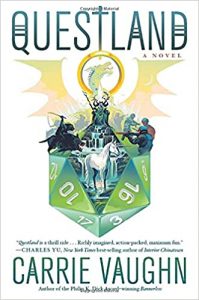 Questland, Carrie Vaughn (Houghton Mifflin Harcourt/John Joseph Adams, 978-03-5834628-9, $15.99, 304pp, tp) June 2021.
Questland, Carrie Vaughn (Houghton Mifflin Harcourt/John Joseph Adams, 978-03-5834628-9, $15.99, 304pp, tp) June 2021.
In Carrie Vaughn’s Questland, English professor Addie Cox is holding office hours when she receives a mysterious invite from the billionaire inventor (think Elon Musk or Tony Stark) Harris Lang. Cox is perfectly content to decline this meeting invite, but his firm makes a $20,000 donation to her department if she’ll agree to a conversation. Like any academic worth her tenure, she reluctantly agrees.
The quest Lang lays out for her is one she can’t refuse. Not only is a former boyfriend involved, it requires a trip to Insula Mirabilis, which is the fantasy-themed island Lang and his employees have created. No, it’s not like TV’s Fantasy Island. Instead, it’s where all of the created worlds with orcs or wizards or elves or Merry Men have been given something resembling life – and something has gone wrong.
Carrie Vaughn uses the formula of the hero’s tale to craft a layered story about the difference between what is real and what is true. Her Addie Cox is a competent woman whose PTSD and related grief stand in the way of her owning her heroic-ness. Questland lifts unrepentantly from nearly every fantasy trope out there but does so in a knowing way that shows why these tropes work so well. The structure of Vaughn’s story is familiar, yes, but simultaneously fresh and new.
Adrienne Martini has been reading or writing about science fiction for decades and has had two non-fiction, non-genre books published by Simon and Schuster. She lives in Upstate New York with one husband, two kids, and one corgi. She also runs a lot.
This review and more like it in the June 2021 issue of Locus.
 While you are here, please take a moment to support Locus with a one-time or recurring donation. We rely on reader donations to keep the magazine and site going, and would like to keep the site paywall free, but WE NEED YOUR FINANCIAL SUPPORT to continue quality coverage of the science fiction and fantasy field.
While you are here, please take a moment to support Locus with a one-time or recurring donation. We rely on reader donations to keep the magazine and site going, and would like to keep the site paywall free, but WE NEED YOUR FINANCIAL SUPPORT to continue quality coverage of the science fiction and fantasy field.
©Locus Magazine. Copyrighted material may not be republished without permission of LSFF.





